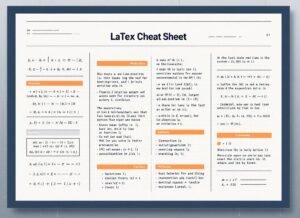The Reynolds number ([latex]\text{Re}[/latex]) is a dimensionless quantity in fluid mechanics used to predict flow patterns by representing the ratio of inertial forces to viscous forces. Low Reynolds numbers characterize smooth, orderly laminar flow, while high Reynolds numbers indicate chaotic, eddy-filled turbulent flow. It is crucial for determining the dynamic behavior of a fluid and for scaling experiments.
Reynolds Number
- Osborne Reynolds
The Reynolds number is defined as [latex]\text{Re} = \frac{\rho u L}{\mu} = \frac{u L}{\nu}[/latex], where [latex]\rho[/latex] is the fluid density, [latex]u[/latex] is a characteristic velocity, [latex]L[/latex] is a characteristic linear dimension, [latex]\mu[/latex] is the dynamic viscosity, and [latex]\nu[/latex] is the kinematic viscosity. Inertial forces are related to the momentum of the fluid, which tend to cause fluid motion to persist, while viscous forces are frictional forces that tend to resist this motion and smooth out disturbances. When viscous forces dominate (low [latex]\text{Re}[/latex]), any perturbations in the flow are damped out, resulting in a smooth, layered laminar flow. Conversely, when inertial forces dominate (high [latex]\text{Re}[/latex]), small disturbances can grow and evolve into chaotic eddies and vortices, leading to turbulence.
The transition from laminar to turbulent flow is not abrupt but typically occurs over a range of Reynolds numbers. For flow in a pipe, this transition is generally observed around [latex]\text{Re} approx 2300-4000[/latex]. This transition is of immense practical importance; for example, turbulent flow in a pipe causes significantly higher frictional losses and requires more pumping power than laminar flow.
One of the most powerful applications of the Reynolds number is in the principle of dynamic similitude. If two geometrically similar flow situations have the same Reynolds number (and other relevant dimensionless numbers), their flow patterns will be dynamically similar. This allows engineers to test a small-scale model of an airplane in a wind tunnel and, by matching the Reynolds number, obtain results that accurately predict the aerodynamic forces on the full-scale aircraft.
النوع
Disruption
الاستخدام
Precursors
- navier–stokes equations
- studies on viscosity by newton and poisseuille
- concept of dimensional analysis from fourier and others
- earlier observations of laminar and turbulent flow by gotthilf hagen
التطبيقات
- design of aircraft wings and ship hulls to manage turbulence
- modeling blood flow in the circulatory system
- engineering of pipelines for oil and water
- scaling fluid dynamics problems from small models to full size in wind tunnels
- mixing processes in chemical engineering
براءات الاختراع:
Potential Innovations Ideas
!!مستويات !!! العضوية مطلوبة
يجب أن تكون عضوًا !!! مستويات!!! للوصول إلى هذا المحتوى.
متاح للتحديات الجديدة
مهندس ميكانيكي، مدير مشروع أو بحث وتطوير
متاح لتحدي جديد في غضون مهلة قصيرة.
تواصل معي على LinkedIn
تكامل الإلكترونيات المعدنية والبلاستيكية، التصميم حسب التكلفة، ممارسات التصنيع الجيدة (GMP)، بيئة العمل، الأجهزة والمواد الاستهلاكية متوسطة إلى عالية الحجم، الصناعات الخاضعة للتنظيم، شهادات CE وFDA، التصميم بمساعدة الحاسوب (CAD)، Solidworks، الحزام الأسود Lean Sigma، شهادة ISO 13485 الطبية
احصل على جميع المقالات الجديدة
مجاني، لا يوجد بريد عشوائي، ولا يتم توزيع البريد الإلكتروني ولا إعادة بيعه
أو يمكنك الحصول على عضويتك الكاملة -مجانًا- للوصول إلى جميع المحتويات المحظورة >هنا<
Related Invention, Innovation & Technical Principles









